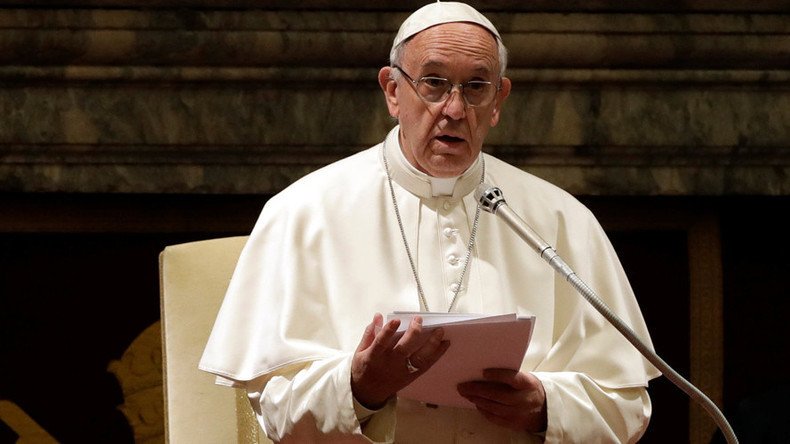Pope Francis accused of ‘upholding heresies’ about marriage & moral life

International clergy and lay scholars accused Pope Francis of propagating “heresies” regarding marriage, the moral life, and the reception of the sacraments, which tradition-minded theologians insist the pontiff has “directly or indirectly upheld.”
In their 25-page letter, delivered to Francis last month, 62 clergy and lay scholars from 20 countries issued a ‘filial correction’ to the pope. It is the first time such a measure has been employed since Pope John XXII was admonished in 1333, the National Catholic Register reported.
The letter, available in six languages, states that by his Apostolic Exhortation ‘Amoris Laetitia’ (The Joy of Love) and “other, related, words, deeds and omissions,’’ Francis has “effectively upheld 7 heretical positions about marriage, the moral life, and the reception of the sacraments, and has caused these heretical opinions to spread in the Catholic Church.”
Amoris Laetitia was released in April 2016, and came under fire from scholars because it opened the door to allowing civilly remarried Catholics to receive communion.
In the document, the Pope calls for the church to be more accepting of “imperfect members,” saying that “no one can be condemned forever.” In Amoris Laetitia, the Pope says priests and bishops should decide on a case-by-case basis if someone who has divorced and remarried can be reintegrated into the Catholic church and receive communion.
This stands in contrast to Church law, according to which they cannot receive communion unless they abstain from sexual relations with their new partners, as their first marriage is still valid in the eyes of the Church. The individual in this case would be committing the sin of adultery under Church teachings.
Yet, the signatories to the filial correction emphasize that they are making “no judgment about Pope Francis’s culpability in propagating the 7 heresies,” as it is “not their task to judge whether the sin of heresy has been committed.”
They note, however, that “others who have spoken up in defense of the Catholic faith have been subject to reprisals.”
Therefore, the “signatories speak for a large number of clergy and lay faithful who lack freedom of speech.”
The clergy and scholars “respectfully insist” that Pope Francis “condemn the heresies that he has directly or indirectly upheld,and that he teach the truth of the Catholic faith in its integrity.”
The Pope has yet to respond.
In June of last year, a letter was sent to the Pope signed by a group of 45 Catholic scholars, appealing to him to correct errors in Amoris Laetitia that they claimed contain “a number of statements that can be understood in a sense that is contrary to Catholic faith and morals.”














